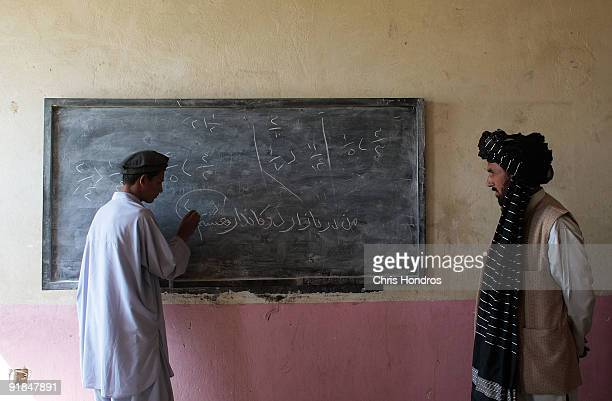Peering Past the ‘Pixie Dust’ of Technology

How schools can ensure that technology is used effectively to transform teaching and learning
By Jill Hobson
When it comes to technology use in schools, a persisting tendency exists to believe that infusing classrooms with new technology will miraculously change teaching and learning. Unfortunately, education technology isn’t like Tinker Bell’s pixie dust. Sprinkling it in classrooms won’t magically transform instruction.
The novelty of new technology simply doesn’t change instruction by itself. Teachers must have guidance and direction, as well as a model for effective edtech use, in order to truly transform teaching and learning.
Today, many administrators expect technology to be used in daily instruction. The sentiment is admirable, but without setting clear expectations for how technology should transform instruction, what districts will see is “mood use.” If teachers are in the mood to use technology, they will. Otherwise, the district’s significant investment in new learning technologies may sit idly by, gathering dust.
For technology to be an integral part of a school district’s strategic improvement plan, technology directors must outline and communicate specific goals to all stakeholders. Then, they must measure progress toward that goal, continually coaching and improving as necessary.
Developing common language
The first step is to develop a common language. The education community works diligently to ensure its members have a common understanding around most aspects of instruction. For instance, if asked, “What does it mean to teach fractions effectively?” a school’s math department probably has a standard definition by which to measure learning outcomes against a stated objective. But if asked, “What does it mean to use technology effectively to teach fractions?” that’s another question altogether, and one where responses likely diverge.
Just as a school or district develops a common understanding of what effectively teaching a concept looks like, developing a similar definition for effectively teaching with technology is a must. Once established, schools can design professional development and classroom behaviors around this standard.
In developing a common understanding, school and district leaders should focus on teaching and learning, and not on the technology itself. Begin by asking questions such as: “How should instruction look?” and “What kind of learning do we want to see?” Next, leaders should outline attributes they would like to see realized in the classroom, such as students developing higher-order thinking skills; project-based and authentic learning; collaborative, personalized, and rigorous learning. Once a common language is established, district and school leaders can begin building a vision that will be clearly defined – and understood.
Various models
Models that describe the effective use of ed-tech already exist, and they can help decision makers as they bring their vision for technology use to life.
For example, the LoTi (for Levels of Teaching Innovation) model defines technology use from Level 0 (non-use) through Level 6 (Refinement). Another model, Grappling’s Technology and Learning Spectrum, defines ed-tech use as a three-step progression: from technology literacy, to adapting, to transforming.
The Technology Integration Matrix, developed by the Florida Center for Instructional Technology at the University of South Florida College of Education, outlines five levels of performance: Entry, Adoption, Adaptation, Infusion, and Transformation. Five learning characteristics are described at each of these levels, including: Active, Collaborative, Constructive, Authentic, and Goal-Directed.
Using a model is highly effective for any entity in the education space. Promethean’s model, which guides the development of all its educational technology products, believes that ed-tech must enhance four critical capabilities for teachers, students and schools: increase student engagement, provide learning feedback, personalize instruction, and foster collaboration. Within each capability, products must allow for the three teaching and learning modalities of developing, applying, and creating.
Whether using an existing model or creating a model, districts must establish a vision for effectively teaching and learning with technology. Then, they can start to measuring progress toward their vision by collecting data.
Classroom walkthroughs
While districts should spotlight stories that demonstrate successful use of technology, it’s important to remember that anecdotal evidence doesn’t paint a complete picture of what’s going on in classrooms. It represents one sample. Peering past the ‘pixie dust’ of technology features and functions will uncover patterns of use or non-use and allow us to see what’s really happening
Collecting data is critical to this effort. One of the best ways to collect data is walking through your building, looking in classrooms, and observing how technology is being used. The point is not to use this information in a punitive way, but as a snapshot of where you are – and what actions you need to take in order to improve.
As the director of instructional technology for Georgia’s Forsyth County Schools, I conducted numerous classroom walkthroughs and developed professional learning plans based on this information. After doing more than 2,100 walkthroughs in Forsyth County, I firmly believe they should not be done alone. By conducting walkthroughs as a group, more in-depth and reliable data is collected, and the team of stakeholders can collaborate after the fact about what they observed.
The selected technology use model will determine what data to collect during walkthroughs. It will indicate the characteristics to observe and offer guidance on how to tally the observations. Many models encourage observers to create a summary of the lesson activities observed. In my experience, it’s also advisable to create a short coaching statement for the teachers observed in a given walkthrough that guide a teacher on next steps for technology integration in their classroom.
To delve even deeper into your schools’ technology use, focus observations and efforts on key areas for students and teachers:
- Look at the work product students are producing.
- Are all of the products exactly the same?
- Does the student work simply report back facts or does it go beyond existing information?
- Look at teachers’ lesson plans.
- Is there evidence of project-based learning?
- Do the plans suggest that students have ownership of their own learning?
- Is there evidence that formative assessment information is being used to adjust the instruction?
- Talk with your teachers, students, and parents.
- Ask about the best examples they have seen of technology use in the school.
- Where do those examples fall within the technology integration model for your school or district?
- Are the examples similar across stakeholder groups or is there some difference?
Use all of this information to assess the district’s current standing with technology use. Now ask, do practices match the goals set as a district?
Look for patterns, such as an over-emphasis on teacher-led instruction, a lack of instruction guided by formative assessment data, or student projects that don’t involve collaboration, which can lead to better insights into where to focus professional development efforts. Also make sure to coach for better performance. The old saying, “There is no finish line,” rings true. Even when effective technology use is realized, encouraging continuous improvement of performance ensures students always receive the highest level of instruction.
Next steps
Four more strategies that can help make change happen in schools and districts includes:
Practice rating ed-tech use as a group. Look at several examples together, whether from one’s own district, from YouTube, or an online teaching and learning community. Free online communities, such as Promethean Planet, that contain pedagogically sound video resources can help start conversations about technology in the classroom: what works, what needs to be improved, and so on.
Have teachers observe each other. Peer-to-peer learning is a profound form of professional development. Giving teachers opportunities to see examples from their colleagues’ instruction can help visibly move the needle. In order to make observation a reality, be a resource that supports your teachers. Assist with scheduling, make connections between teachers who can learn from each other, and provide information to help guide their discussions.
Build a library of exemplary lessons. Ask teachers to share their most effective lesson plans utilizing technology to transform learning. If possible, record short videos of these lessons. Collect lessons and videos in a single repository that educators can easily access to see examples of success.
Celebrate every success. Moving from point A to point Z takes time. Changing and improving technology usage during instruction is a continuum. It’s important to acknowledge each small step taken toward the end goal.
Everyone in your school or district can be working toward the same goal of ensuring that educational technology investments effectively transform teaching and learning. The first step is aligning to a common vision for effective ed-tech use followed with a means of measuring progress and a system for continual improvement. After all, to reach the same place, we must start with the same goal in mind. Unless your goal is the power of flight – then I recommend pixie dust.
Read all of our posts about EdTech and Innovation by clicking here.
________________
The former Director of Instructional Technology for the Forsyth County Schools in Georgia, Jill Hobson is now Senior Education Strategist for Promethean. She can be reached for questions at [email protected]






